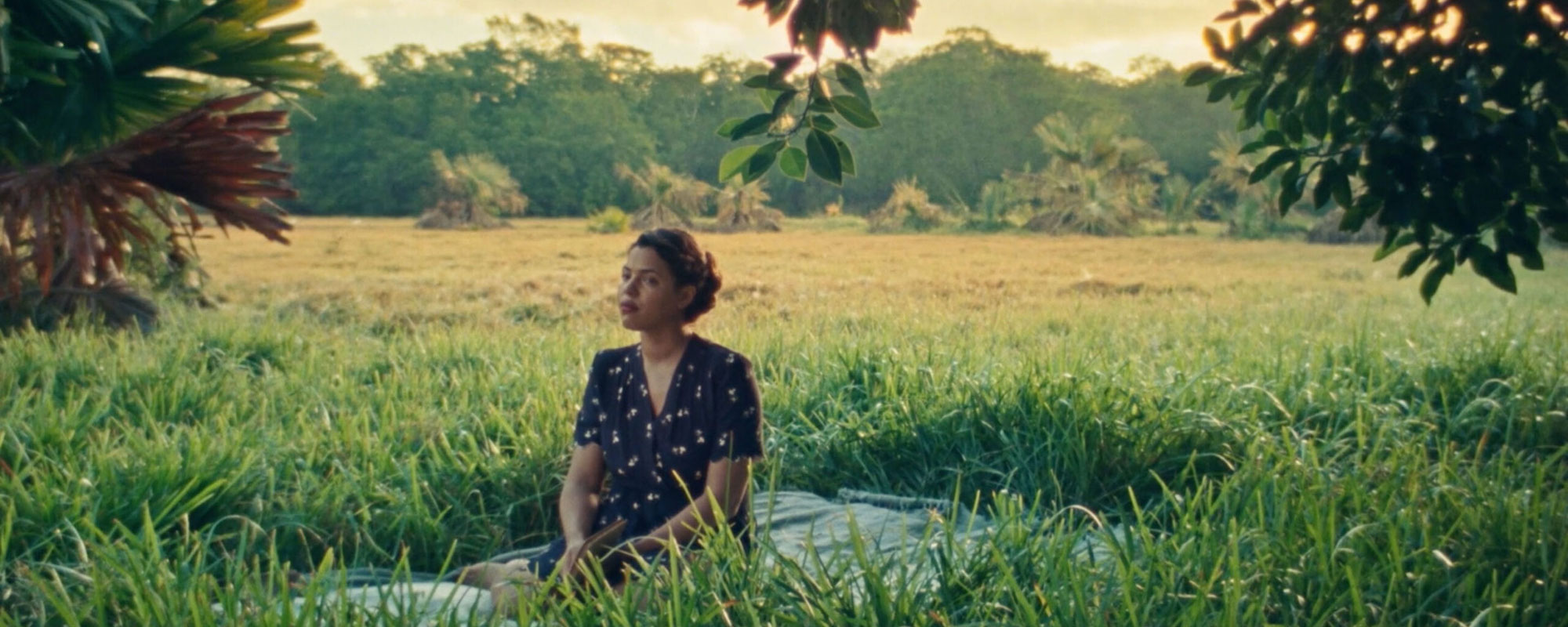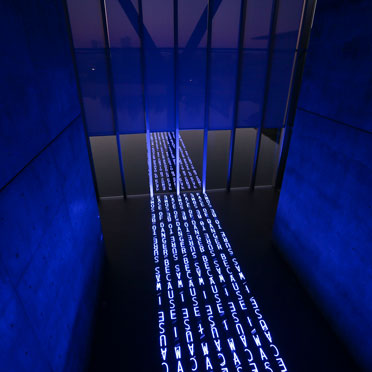Echoes of Césaire Film Presentation

Still from Too Bright to See (Part 1), directed by Madeleine Hunt-Ehrlich, 2023–2024
The Modern Art Museum of Fort Worth and the Latin American Film Center NYC Present Echoes of Césaire
Saturdays, July 20 and 27
Free Admission
Film Presentation in the Museum Auditorium
The Modern Art Museum and the Latin American Film Center NYC present Echoes of Césaire, a film presentation in conjunction with the Modern’s special exhibition Surrealism and Us: Caribbean and African Diasporic Artists since 1940.
Echoes of Césaire, curated by LAFC’s Head Programmer Aerin Chaklai, exhibits the profound influence of Aimé Césaire and Suzanne Roussi Césaire on the Negritude movement, highlighting how their work at the intersection of Caribbean politics and Surrealism has paved the way for modern Afrosurrealism and Afrofuturism. The program begins with Too Bright to See (Part I), an experimental short film by Madeleine Hunt-Ehrlich, which serves as an ode to Suzanne Césaire and draws from the filmmaker’s extensive research on her influential muse. Following this, Aimé Césaire: un homme, une terre by Sarah Maldoror delves into Aimé Césaire’s pivotal role as a founder of the Négritude movement.
The final two films, Djibril Diop Mambéty’s Touki Bouki and John Coney’s Space is The Place, represent Afrosurrealist and Afrofuturist cinema respectively. These films illustrate the lasting impact of the Césaires’ exploration of Caribbean identity and their resistance to colonialism, which helped catalyze the emergence of these artistic movements.
SCHEDULE
July 20, 1 pm
Too Bright to See (Part I) by Madeleine Hunt-Ehrlich
This film blends archival materials and cinematic narrative scenes, portrayed by an unconventional cast. Drawing inspiration from Caribbean aesthetics and Surrealist art, the film highlights new aspects of Suzanne Roussi Césaire’s legacy that are undocumented in the public arena, while confronting the ongoing erasure of women from historical accounts.
22 minutes, 16mm film, 2023–24
An introductory video with Hunt-Ehrlich will play before the film.
Aimé Césaire: un homme une terre by Sarah Maldoror
Maldoror presents a portrait of her multifaceted friend Aimé Césaire—a Martinician poet, politician, and co-founder of the Négritude movement—through interviews, landscapes, and scenes from his play. Négritude was a progressive artistic and political movement that defended Black culture and had strong ties to Marxist and anti-colonial ideals.
52 minutes, 1976
After the screening, Annouchka de Andrade, Maldoror’s daughter, will join us for a virtual Q&A session. The discussion will be moderated in person by Bonnie Lucero, professor of Latin American studies and history at Texas Christian University.
July 27, 1 pm
Touki Bouki by Djibril Diop Mambéty
The film, set in Senegal in the early 1970s, offers a striking mix of the surreal and the naturalistic. Influenced by the French New Wave, Mambéty’s narrative follows two young lovers who dream of escaping Dakar for France but face both tangible and mystical obstacles. Known for its dazzling imagery and music, the film is widely considered a cornerstone of African cinema.
95 minutes, 1973
July 27, 3 pm
Space is the Place by John Coney
Avant-jazz visionary Sun Ra’s Afrofuturist vision comes to the screen in this film adaptation of his concept album. It’s a wild, kaleidoscopic whirl of science fiction, incisive social critique, playful pseudo-blaxploitation stylistics, and electrifying concert sequences, as Sun Ra and his Arkestra spearhead an intergalactic mission to relocate the Black community to their utopian space colony.
85 minutes, 1974
SPEAKER INFORMATION
Madeleine Hunt-Ehrlich, New York City, New York
Hunt-Ehrlich is a filmmaker who explores the inner worlds of Black women. Her work has been screened globally at venues including the 2023 Berlinale, the 2022 Venice Biennale, and the Guggenheim Museum. In her work, she focuses on Martiniquan writer and activist Suzanne Roussi Césaire. Hunt-Ehrlich draws from Caribbean aesthetics and Surrealist artwork, as influenced by Césaire’s work.
Annouchka de Andrade, Paris, France
De Andrade is the daughter of French filmmaker, Sarah Maldoror, director of un homme, une terre. Her work in international cultural cooperation includes a strong focus on audiovisuals, cultural heritage, and production. Together with her sister, Henda Ducados, she developed a project to preserve and share the work of their parents, Sarah Maldoror and Mário de Andrade, including restoring films and archiving documents, correspondence, manuscripts, and screenplays.
Dr. Bonnie Lucero, Fort Worth, Texas
Dr. Lucero is the Neville G. Penrose Chair of Latin American Studies and History and Associate Professor at Texas Christian University. She is an expert on Latin America and the Caribbean. Her research centers on the historical intersections of race and gender in colonial and postcolonial contexts, especially in Cuba. Her areas of expertise include the history of Cuba, Latin America, and the Caribbean; women and gender; race and ethnicity; and the African diaspora in Latin America and the Caribbean.
